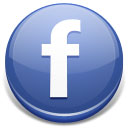Anxiety and Insomnia
There is a disconnect with the actual nature of medication and the reality of their actions and side effects. We tend to think that drugs are safer than they really are, and we tend to think that they are more effective than they really are. Heath Ledger had problems with anxiety and sleeping, for which he took drugs that had little positive effect.
According to a report from MSNBC, based on NIH figures, between 2000 and 2004, the use of sleep medications doubled among adults aged 20-44. Use in children even increased—up by 85%.
Americans now spend around $5 billion each year on sleep medications. According to the October 23, 2007 issue of the New York Times, also reporting NIH figures, newer sleeping pills like Ambien, Lunesta, and Sonata reduced the average time to go to sleep by just under 13 minutes compared with fake pills. The sleeping pill Rozerem, gets you to sleep 7 to 16 minutes faster than a placebo, and increases total sleep time 11 to 19 minutes for the low, low price of $3.50 per pill.
We believe in the efficacy of antidepressant medication. The U.S. Centers for Disease Control and Prevention looked at 2.4 billion drugs prescribed in visits to doctors and hospitals in 2005. Of those, 118 million were for antidepressants. The New England Journal of Medicine published that the reporting of results of antidepressant trials exaggerates the effectiveness of the drugs. According to the published literature, nearly all studies conducted (94%) had positive treatment results, but FDA data showed that in fact only about half (51%) of the studies were positive. The author of the report, Erick Turner, M.D., assistant professor of psychiatry, physiology and pharmacology at Oregon Health & Science University and Medical Director of the Portland Veterans Affairs Medical Center"s Mood Disorders Program states, “Selective publication can lead doctors and patients to believe drugs are more effective than they really are, which can influence prescribing decisions.”
Of course, all drugs have side-effects. Antidepressants are linked to violent behavior and to suicide in younger people. Sleep medication has been linked to bizarre things like sleep eating and traveler’s amnesia. A study published in the April 15, 1998 issue of the Journal of the American Medical Association found that more than 2 million Americans become seriously ill every year from reactions to drugs (this is a figure for all drugs—not sleep medication) that were correctly prescribed and taken; 106,000 Americans die annually from those side effects.
There has to be a better way. This is not to say that drugs are never necessary, but it is vital that you ask yourself, “Have I exhausted all the natural health possibilities?” Your life may depend on it.
There are other, well researched approaches to improving sleep and reducing anxiety and depression. A study appearing in the Journal of Affective Disorders (1985;8:197-200) shows the value of 5-hydroxy tryptophan. Acupunture, herbs and melatonin have all had positive research results for people having trouble sleeping. The beauty of natural health care is the lack of side-effects. It really is about seeking balance and health.
Return to the Mental Health Articles page.
Get To Know Us A Little Better
Keep up to date on what"s going on at the clinic. Receive news and health tips exclusive to subscribers. Sign-up for our free monthly newsletter today.
Connect With Us
Take A Step Towards Better Health
When you are ready to book an appointment, try our online booking option. It"s convenient, easy and fast. Of course, you also have the option of contacting the clinic by phone (705) 575-7560 or email.





